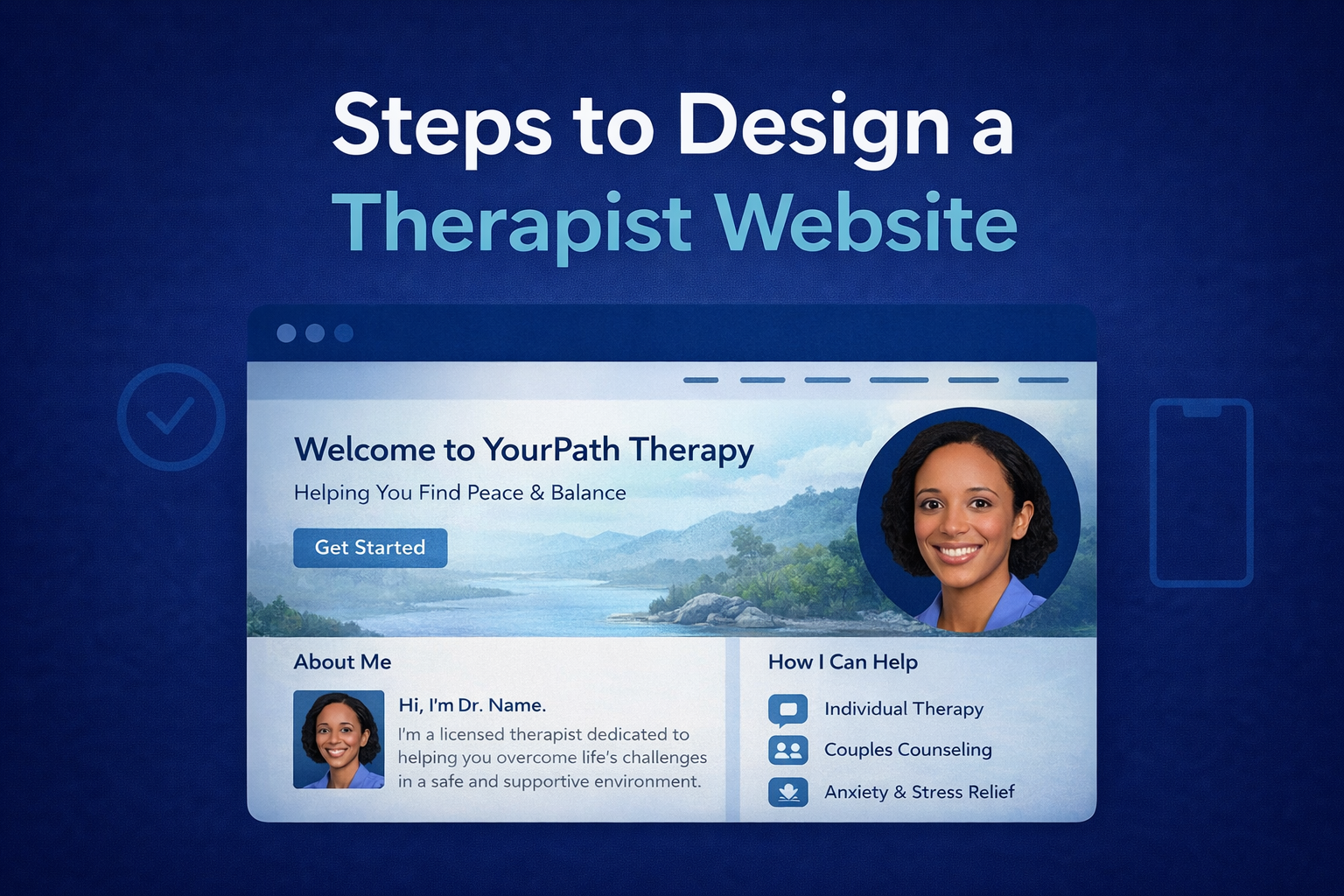Introduction
A strong online presence for therapists is no longer optional—it’s essential. With clients increasingly searching for mental health services online, therapists must stand out in a competitive digital landscape. A compelling online presence builds trust, showcases expertise, and attracts ideal clients.
Why Online Presence Matters for Therapists
Your online presence is often a client’s first impression. A professional website, active social media, and optimized search rankings signal credibility. In mental health, trust is paramount, and a weak digital footprint can leave you invisible to potential clients.
Google’s 2025 updates prioritize user-focused content and authority. A robust online presence ensures you rank higher for searches like “therapist near me.” Start by auditing your current digital assets to identify gaps.
Building a Client-Focused Website
A website is the cornerstone of your online presence. Ensure it’s mobile-friendly, fast-loading, and HIPAA-compliant to protect client data. Include clear calls-to-action, like booking forms, to convert visitors into clients.
Key elements include:
- About Page: Highlight your credentials and approach.
- Services Page: Detail therapy offerings with client-centric language.
- Contact Form: Make it easy to reach you securely.
For more, explore our guide to building a HIPAA-compliant therapist website.
Optimizing for Search Engines
SEO drives visibility for searches like “online presence for therapists.” Use long-tail keywords, such as “anxiety counseling in [city],” to target specific client needs. Optimize title tags, meta descriptions, and headers.
Incorporate schema markup for local business to appear in rich snippets. Regularly update content to stay relevant. Learn more in our SEO strategies for therapists.
Leveraging Local SEO
Local SEO connects you with nearby clients. Optimize your Google Business Profile with accurate details, photos, and client reviews. Respond to feedback promptly to build trust.
Use location-based keywords, like “therapist in [neighborhood].” Analytics can reveal which areas drive traffic. For deeper insights, read our local SEO guide for therapists.
Engaging Through Content Marketing
Content establishes authority and engages clients. Publish blog posts on topics like “coping with stress” or “benefits of online therapy.” Use videos or infographics for variety.
Promote content via newsletters and social media. Consistent posting—weekly or bi-weekly—boosts SEO and client trust. Check our content marketing ideas for therapists.
Harnessing Social Media Effectively
Social media amplifies your reach. Platforms like LinkedIn or Instagram allow you to share insights and connect with clients. Post tips, success stories (anonymized), or mental health resources.
Engage with followers by responding to comments. Avoid oversharing sensitive information to maintain professionalism. Explore our social media strategies for therapists.
Using Analytics to Refine Your Presence
Analytics reveal what works and what doesn’t. Track metrics like organic traffic, bounce rates, and conversion rates using Google Analytics. Monitor keyword performance with Search Console.
For example, if your blog drives traffic but not inquiries, refine calls-to-action. Use data to prioritize high-performing pages. Regular analysis ensures your efforts align with client needs.
Voice Search and AI Optimization
Voice searches like “find a therapist for depression” are surging in 2025. Optimize for conversational keywords and FAQs to capture featured snippets. Ensure your site is mobile-optimized for voice users.
AI tools can analyze user trends, but human oversight ensures ethical content. Learn more in our voice search SEO guide.
Comparison of Key Strategies for Online Presence
| Strategy | Purpose | Tools/Resources | Impact |
|---|---|---|---|
| Website Optimization | Improve user experience and conversions | WordPress, Yoast, PageSpeed Insights | Higher rankings, more inquiries |
| Local SEO | Attract nearby clients | Google Business Profile, Moz Local | Increased local visibility |
| Content Marketing | Build authority and trust | Blog platforms, Canva for visuals | Engaged audience, better SEO |
| Social Media Engagement | Connect with clients and community | LinkedIn, Instagram, scheduling tools | Brand awareness, client trust |
| Analytics Tracking | Measure performance and refine strategies | Google Analytics, Search Console, Hotjar | Data-driven growth |
Ethical Considerations for Therapists
Ethics are critical in mental health. Ensure your online presence complies with HIPAA, protecting client privacy. Avoid exaggerated claims or misleading content that could erode trust.
Focus on authentic, helpful content that prioritizes client well-being. Transparency in marketing builds lasting relationships and aligns with Google’s guidelines.
Case Studies: Transforming Online Presence
One therapist revamped their website with local SEO, doubling inquiries in six months. Another used social media to share mental health tips, growing their following by 30%.
These successes highlight the power of targeted strategies. Apply similar tactics to make your practice irresistible to clients.
Overcoming Common Challenges
Challenges like low traffic or outdated websites are common. Counter with regular content updates and technical SEO fixes. Budget constraints? Start with free tools like Google Analytics.
Partner with specialists for complex issues, such as HIPAA compliance. Persistence and data-driven adjustments lead to long-term success.
Future-Proofing Your Online Presence
Stay ahead of 2025 trends like AI-driven search or interactive content. Invest in evergreen content, like guides on mental wellness, that evolves with client needs.
Engage clients through webinars or forums. Monitor industry updates to adapt your strategy proactively.
Conclusion
Transforming your online presence for therapists requires a blend of SEO, content, and ethical marketing. By optimizing your website, leveraging local SEO, and engaging through content and social media, you can attract more clients and build trust.
Start today to move from invisible to irresistible. For expert support, contact Mental Health IT Solutions.







